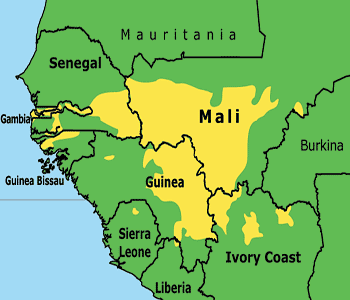Bambara
With a population estimated at 3 million, the Bambara are the largest ethnic group in MALI. Large numbers of them live in northern IVORY COAST as well. They are sometimes called Bamana, the name of the Mande language they speak.
In the 1700s two Bambara kingdoms arose in the region, but they fell to Muslim forces during the 1800s. When the French moved into the area, they destroyed the remaining Bambara armies. By the early 1900s some Bambara had converted to Islam, the religion of their longtime Muslim enemies, as a way of resisting French rule. The process of conversion increased rapidly after World War II, and since the 1980s more than 70 percent of the Bambara have been Muslims.
Many of the Bambara who live in cities hold important positions in politics, business, and professions such as law and medicine. The Bambara of rural areas are mainly farmers, growing staple crops and several cash crops including peanuts, rice, and cotton. They are renowned as artists and weavers of cloth that is exported around the world. In recent years many Bambara have moved from rural to urban areas to find work as laborers. (See also Islam in Africa.)
